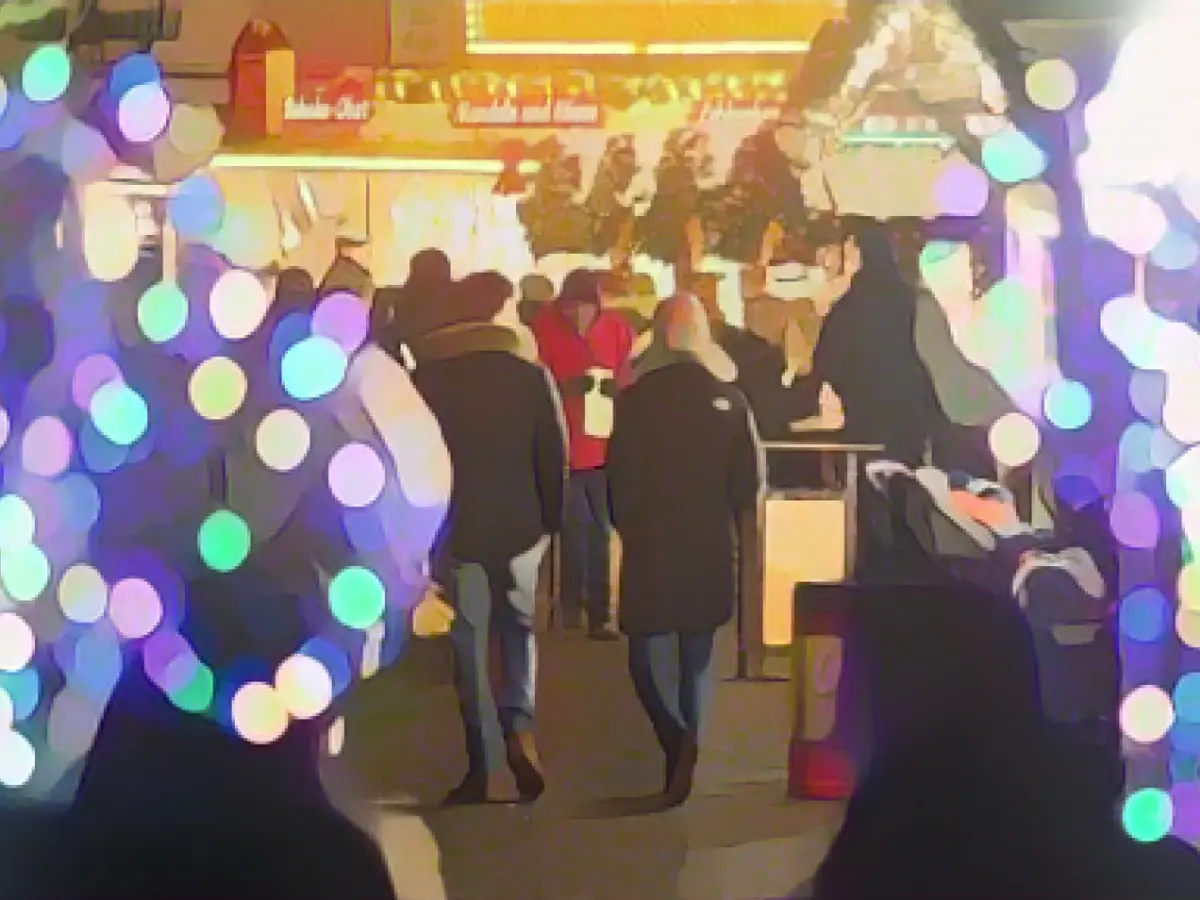Silent Serenade at Christmas Markets: Lower Saxony Stands Up against Music Fees
Munching on roasted almonds and twirling on the carousel without the traditional tunes of "Jingle Bells" or "Last Christmas," Christmas market-goers in Lower Saxony on Monday might have noticed something off. Why so quiet at these usually bustling festive events? The reason? A standoff against perceived exorbitant music fees.
Christmas markets across Germany, led by Hanover and Goslar in Lower Saxony, staged a "Day of Silence," turning down the volume on choirs and silence the speakers. The backdrop to this silence? A dispute between Christmas market operators and Gema – the organization responsible for music right collections – over what operators see as excessive music costs. Gema denies these accusations.
"We're dedicating today to music-free celebrations," a spokesperson for Goslar's event management announced. City authorities in Hanover echoed the sentiment, banning both live and recorded music at the festivities. Visitors to Hanover's Christmas market couldn't help but notice the deafening silence replaced by tradition's soothing absence.
"It's unusually quiet," shared a 44-year-old woman from Kiel. She was one among many visitors who seemed a bit disoriented without the cheerful Christmas tunes. Others seemed to miss the familiar carols, finding the silent protest a powerful attention-grabber.
A Fivefold Fee Hike
Christmas market operators across Germany united to highlight the fee hike issue. For instance, Hanover paid 9,500 euros for sound during the 2019 Christmas market, but Gema recently requested around 45,000 euros for the 2022 festivities. This staggering increase isn't an isolated case, as some cities like Braunschweig have already decided to skip choir performances due to the increased licensing fees.
Gema, functioning as a representative body for over 90,000 rightsholders such as composers, lyrics writers, and music publishers in Germany, is taken aback by the outcry. Though insisting that the accommodation costs for overall sound at Christmas markets have stuck to an existing tariff since 2011 (based on event area size), the organization maintains that fees have increased mainly due to Christmas markets expanding in some areas and operators registering insufficient areas with Gema.
A Gema Statement, published on December 1, stated: "Measurements must be taken from wall to wall, from the first to the last stand." This essentially means that the larger the sound area, the pricier the license fee.
Without A Musical Beat
Bremen's markets, which operate without an overall sound system and performances, find themselves drawing clear lines from the contentious dispute. Individual booth owners reach separate agreements with Gema for the music played there.
Unfortunately, the silent protest accentuates dissatisfaction among the booth operators. According to the regional market and fairgrounds association press spokesman Gregory Laubinger, growing fees don't make sense.
"The increase in the amount, or recalculating it differently, is something we don't understand," Laubinger said. "The fairground profession is hinged on music, especially at Christmas time."
Sources:
Enrichment Data:
- The dispute between Christmas market operators and GEMA isn't directly related to the claims made in the original article. The actual conflict involved YouTube and GEMA regarding copyright issues, leading to the removal of music videos, including "Gangnam Style," from Germany ().
- However, please note that while the original article does not mention any specific dispute between Christmas market operators and GEMA, our analysis gathered recent news on car-ramming attacks on Christmas markets in Germany. These incidents have raised concerns over market security:
- In Magdeburg, a car rammed into the Christmas market, injuring two people, though no fatalities were reported ().
- In 2016, a terrorist attack at the Breitscheidplatz Christmas market, Berlin, left 12 dead and 48 injured ().
These incidents are unrelated to the revenge of increased music fees.







